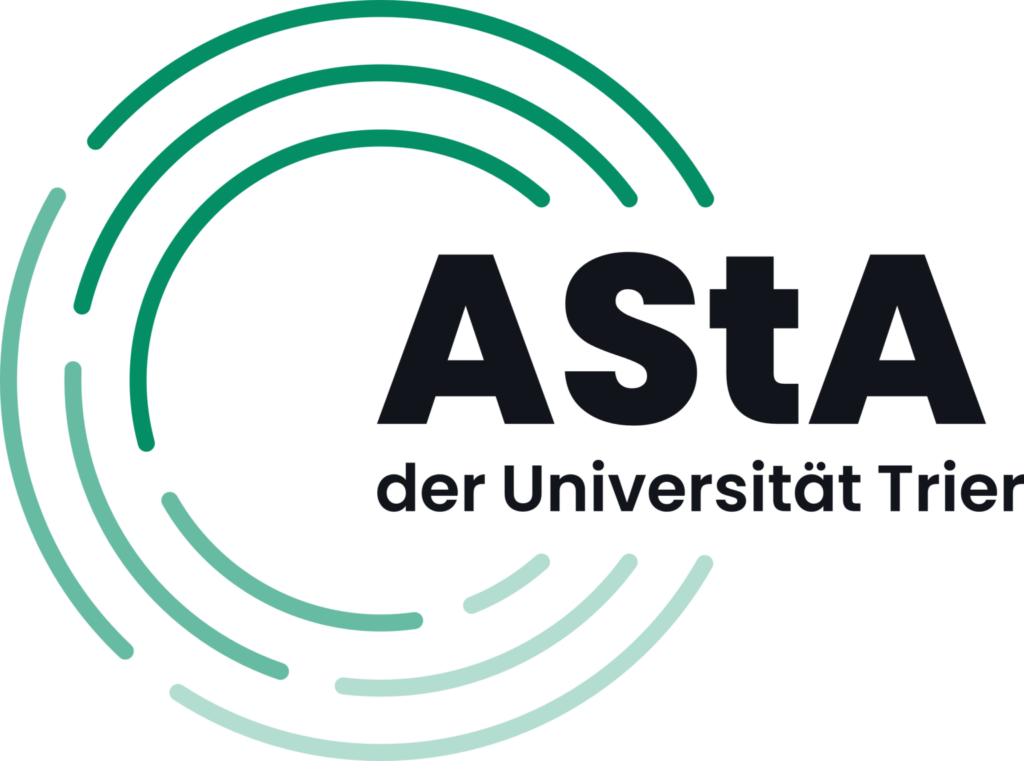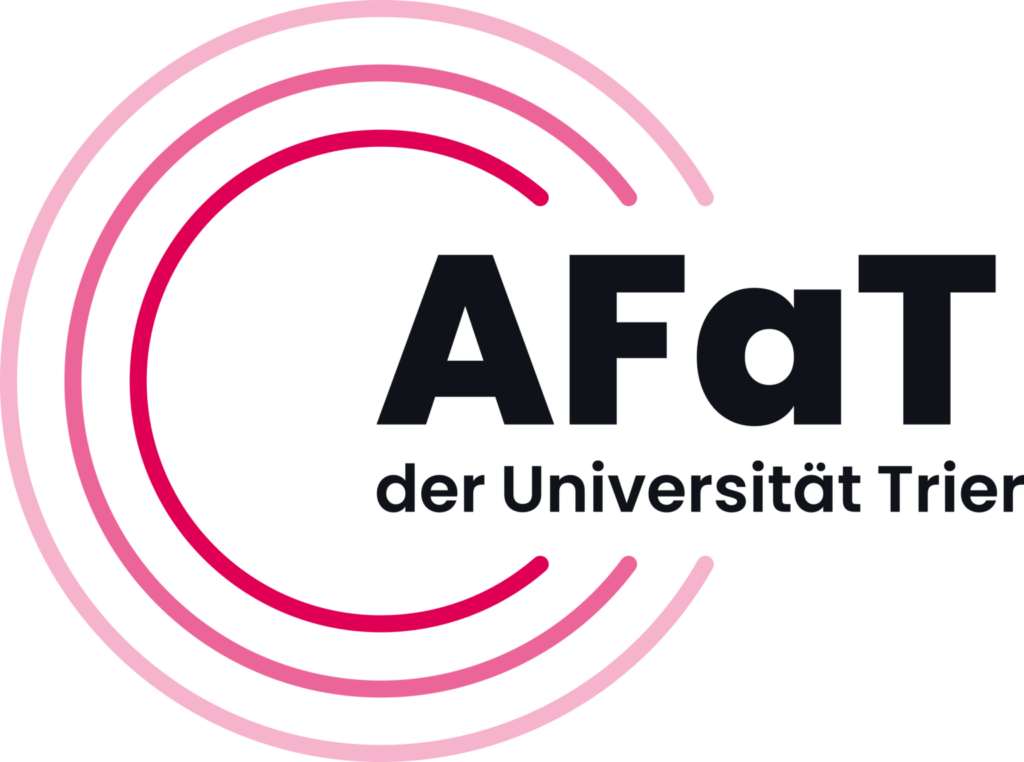
Student Representation
What does “written student body” mean? What exactly is a student union and what is the StuPa? Which AStA departments are there, how can I participate and what offers does the AStA have? And what does all this have to do with each other and with my semester fee?
Written student body | AStA | StuPa | Student unions | Bodies of the University
The Written Student Body
Here is a rough overview of the different bodies of the student body.

The statutory student body with its duties and rights is set out in the form of a public law body in the Landeshochschulgesetz. This gives students the right to administer themselves and to collect contributions from their members (“Student Self-administration”). So you are automatically members of the student body, which currently receives 16 € of your semester fee. The money is administered by AStA. The allocation of funds is decided by the Student Parliament on the budget.
AStA
The AStA (General Student Committee) is the “executive” of the student body and is your elected student body. It is divided into twelve working areas (units) as well as other working groups. The AStA organises offers for the student body and represents them vis-à-vis the university and society. The work at AStA is voluntary.
The lectures of the AStA are led by main lecturers, who are supported and represented by co-lectors. Eight main lecturers are elected annually by the “legislative”, the student parliament. The four main speakers of the autonomous units are elected directly by their respective target group at a general meeting. The AStA has also set up working groups, such as Campusradio, CineAStA and AK Sport.

StuPa
The Student Parliament (StuPa) has 25 seats and is directly elected annually by all students. Traditionally, the political lists on campus compete here. The StuPa elects the majority of the AStAs and decides on the budget and all financial expenses of the student body over 1000€. Decisions of the StuPa are binding on the bodies of the student body (e.g. AStA and Student Councils), because the StuPa is the highest body of the student body as a “legislative body”.
As a rule, after the election in the StuPa there is an “AStA Coalition” which agrees on the staff, important projects and content orientation of the AStA. The StuPa elects a board of trustees, appoints committees, e.g. the Election Committee, and elects the two student representatives to the board of trustees of the Studierendenwerk.

CALL
Why vote? With your election you decide on the composition of the Student Parliament and thus on how the AStA is appointed and what the AStA and student councils can spend their money on. Money, which you pay over the share of 16€ of your semester fee to the student body. Who do you think is committed enough and able to manage your money and spend it wisely? Who do you think is suitable to represent to the university, the city, the press and the state government, e.g. at legislative hearings in the state parliament? Who organises the best parties or the most interesting and critical lectures? Who creates the most useful offers for Studis? All of this you indirectly participate in deciding on your election to the StuPa (and Senate). Of course, you can also get involved beyond that by running for office or participating in discussions.
The Constituted Student Council is a unique legal entity that gives you the opportunity to self-organise and administer yourself. Take advantage of this opportunity.
And: The higher the voter turnout, the stronger the voice of the students.
Therefore: from 6 to 8 December go to vote!
ELECTORAL PROCEDURE
Jedes Jahr können alle Studierenden das Studierendenparlament wählen oder für dieses kandidieren. Die Wahlen werden vom Wahlausschuss des StuPa organisiert. Üblicherweise finden diese in der ersten Dezemberwoche statt. Das Studierendenparlament hat 25 Sitze. Über die Aufteilung der Sitze zwischen den antretenden Listen entscheidet ihr mit eurer Stimme bei der Zentralwahl auf der Zentralliste, bei der alle Studis antreten können. Zudem habt ihr über die fachbereichsbezogene Wahl auf der Fachbereichsliste die Möglichkeit, Personen eures Fachbereiches ein Direktmandat zu geben. Kandidierende einer Liste mit Direktmandat ziehen ins StuPa ein, auch wenn sie nicht über die Zentralliste gewählt wurden. Die Anzahl der Sitze, die eine Liste über die Zentralwahl gewonnen hat, ändert sich hierdurch jedoch nicht (es sei denn, es kommt zu Überhangmandaten).
Ihr werdet feststellen, dass ihr bei den Wahlen noch weitere Wahlzettel in die Hand gedrückt bekommt. Dies liegt daran, dass i. d. R. parallel zu den Wahlen der Studierendenschaft auch die Wahlen der Universität stattfinden. Diese sind vollkommen unabhängig voneinander, werden aber aus organisatorischen Gründen zusammen durchgeführt und sind ebenso wichtig. Hier könnt ihr die studentischen Vertreter*innen im Senat und den Fachbereichsräten (FBR´s) der Uni wählen.
Noch nicht genug gewählt? Verteilt im Jahr könnt ihr ebenso eure Fachschaftsräte (FSR`s), die Vertretungen der Studis eines Faches wählen.
Student unions
Students of a subject are called student union, whose bodies perform their duties independently of AStA/StuPa etc. The Student Councils (FSR) represent them and are elected by the Student Council. The FSRs together form the Autonome FachschaftenTreffen (AFaT), in which they interact with other FSRs and the AStA. They can also apply for funds previously allocated by the StuPa to the AFaT. The student councils are independent of StuPa and AStA in terms of content and politics in the use of the funds.

Bodies of the University

UNIVERSITY LEVEL
The Senate is the highest decision-making body of the University and is responsible for all fundamental matters of the University: election of (vice) presidents, organisation of study programmes (decision of the examination regulations of your subjects) and admission restrictions, academic institutions (e.g. the library) and more. It consists of the President (as chair), deans and vice-deans, 4 students, academic and non-academic staff and advisory members. The members are elected in the university elections by the respective status group they represent.
The University Council advises the University on fundamental matters, has to approve the constitution and changes of academic institutions, makes a proposal for the election of the President and more. It consists of five members of the University (elected by the Senate), including one student, and five members from the fields of business, science and public life.
UNIVERSITY MANAGEMENT
The President of the University of Trier, Prof. Dr. Eva Martha Eckkrammer, directs and promotes the University of Trier and represents it in society. He/she may attend all meetings of university committees and request information from them.
The two Vice-Presidents support the President in their respective areas. The Chancellor of the University, Dr. Ulrike Graßnick, is responsible for the budget as well as legal and administrative matters.
Departmental level
The Faculty Council (FBR) advises and decides on fundamental matters of the Faculty, in addition to allocating funds to the faculties and is responsible for study and examination regulations. It consists of deans (as chair) and vice-deans, professors, academic and non-academic staff, students and one or more gender equality officers.
The Dean, who is elected by the Faculty Council, implements the resolutions, manages the affairs of the Faculty and ensures the provision of courses and their organisation. He or she is represented by one or more vice-deans.
The Appointment Commission takes care of the renewal of the professorships. This is where professors, students and academic staff sit. The examination boards decide, among other things, on hardship applications of students. They consist of professors and deans, staff and students.
Technical level
The management manages the department and represents it vis-à-vis the Dean’s Office. A chair consists of one or one chair holder (one or one professor) and (usually several) non-scientific and academic staff, which may also include students (then called student or academic assistants). These support the professor in his or her work. The Academic Advisory Service is the first point of contact for students with problems and questions related to their subject.